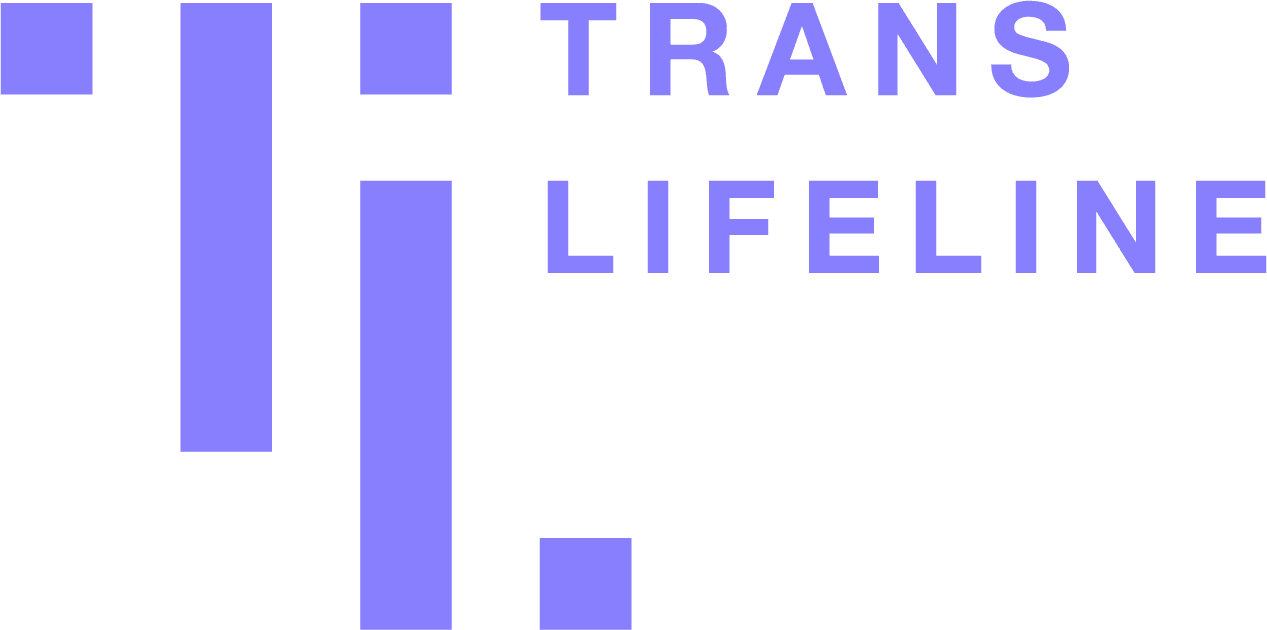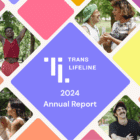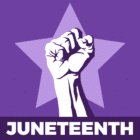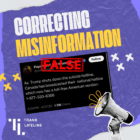A Lifeline in the Storm: Executive Director kai alviar horton Featured on the Law & Disorder Podcast
February 20, 2025
We’re thrilled to share that our Executive Director, kai alviar horton, recently joined the esteemed Law and Disorder podcast for an insightful conversation about the vital work of Trans Lifeline and the increasing challenges facing our transgender community.
In the episode titled “Lifeline for Trans Community Amid Anti-Trans Backlash w/ kai alviar horton,” kai eloquently discusses the human impact of rising transphobia and how Trans Lifeline serves as a crucial peer support and crisis hotline for transgender individuals across the United States and Canada.
This powerful conversation sheds light on the critical need for Trans Lifeline’s services and the resilience of our community in the face of adversity. We encourage you to listen to the full episode to hear kai’s important insights and learn more about the vital support Trans Lifeline provides.

For those who prefer to read along, we are also providing the full audio transcript of the episode below:
At Trans Lifeline, we remain committed to providing a lifeline of support, connection, and hope for our transgender family. We are deeply grateful to Kai for sharing their expertise and passion on the Law & Disorder podcast, helping to raise awareness and understanding of the challenges and the strength within our community.
Transcript
Note: This transcript has undergone minor editing to enhance clarity. The content and meaning remain unchanged.
Cat Brooks: What’s up family? You are tuned into Law and Disorder, a podcast where we expose the cracks in our system, agitate for resistance, and collectively build a new world in which all of us can thrive. From KPFA Radio in the Pacifica Network, I’m your host, Cat Brooks.
The 2nd term of Donald Trump has exacerbated the already existing safety crisis for the transgender community. We’re going to talk about what that materially means for trans folks, as well as highlight a resource for the community that I’ve actually been itching to have on this show for a minute. We are joined by kai alviar horton. They are the executive director of Trans Lifeline, a peer support and crisis hotline offering phone support to transgender people. It is the first transgender crisis hotline to exist in the United States as well as Canada, and the only suicide hotline whose operators are all transgender. Trans Lifeline has a policy against nonconsensual act of rescue, meaning that they will not call emergency services or law enforcement without an explicit request. My kind of org. Good morning, kai.
kai alviar horton: Yeah, thanks so much for having me. Hi folks.
Cat: So kai, I did a sort of blurb about what you all do, but I’d like you to go a little bit deeper. How long have you been around? What is your work? What kind of crisis calls do you all take?
kai: Yeah, so I’ve been the executive director here at Trans Lifeline for the last nine months. I feel like, you know, if you told me nine months ago what I was signing up for, I think I’d be a little bit surprised to hear where we’ve come in the last nine months. Both that—and I mean that in a beautiful way—but also, you know, politically speaking, we’re in really rough times. As an org, right now, we’re seeing a 700 to 800% increase in our calls that are coming through on our hotline. A lot of those calls are reaching category 4 and 5 calls, which are what we label as crisis calls. We really want to share with the community, and with our allies, and with the broader landscape that right now, we are navigating—trans people (are) really sitting with if they’re going to be safe: “Is it going to be OK for me to be trans?” And those are things that we, for a long time, we’re mitigating through resource navigation, and sort of systemic and community care. We’re in this moment politically where a lot of resources are being taken away from folks, via things like federal funding freezes and programs pulling back their support of trans people because they’re scared of losing their own funding, right? So we’re seeing the systemic sort of violence that’s happening, where trans folks are losing access to basic needs, so that is what we’re navigating on our hotline right now—is really trying to figure out what are the more community-based ways of taking care of each other, especially for trans folks that are living in red states, especially for trans folks in the Deep South and in rural communities. So, yeah, it’s been a lot, it’s been a lot. We’ve been in a moment where we’re really hearing from our community at mass scale that there’s a lot of social rejection, fear, exile, and really looking for other people to be in community with, and find reasons to be alive and stay alive. So, that’s where we’re at right now.
Cat: OK, to follow up questions to that. I mean, for me, with my other hat on and as an organizer, we’ve been thinking a lot about mutual aid, right? How we take care of us, and I’m wondering—you touched on that—I’m wondering if there’s examples that you can give of ways in which your community, and hopefully accomplices, are bracing themselves, or what kinds of services or support systems that are community-based are popping up?
kai: Yeah, actually, I just learned about this this morning: There’s this rad organization called Nexus Moving Company that is literally moving and relocating trans folks for free, from rural areas and in the Deep South and just moving them, with professional movers who have access to big rigs, and things like this. And I’m just—I am really, really moved by the ways in which queer and trans people, specifically queer and trans people of color, have learned through generational organizing, what it means to be marginalized and how to choose liberation in each other and love instead. And so there’s things popping up everywhere, right? And as an organization we’re about to, with a lot of care and intention, reintroduce the microgrants program into our organization this year. It’s been paused for the last few years, and this is the first time that we are feeling really grounded that we can actually offer this, and offer it really intentionally and with a lot of strategy and care to our community. And so, you know, we are going to be doing a lot of mutual aid work in the sense of, if you need a microgrant for anything as a trans person, you can have one.
And so we hope that more accomplices, and more allies, and folks with actual material resource start to not make it so that trans folks have to bend into shapes and beg for basic needs to be met, right? I think that’s something that people who are marginalized know so well in their bodies, is that when they need their basic needs to be met, it’s like they have to beg and prove that they deserve that. And so we’re trying to, you know, reduce those barriers. I’m watching a lot of other organizers do the same. And I think that truly mutual aid is going to be the way that trans people really move through this moment and not lose access to our basic needs. So I’m really grateful for the ways in which folks are thinking about being a little bit more anarchist in the way they think about redistributing wealth, and I hope—I see more organizations of our size and larger do the same. So that’s sort of my task this year, is to run the bag back to my people, and so we’re working on that, as we speak, yeah.
Cat: [laughs ]Thank you for that, “run that back.” One more follow-up question here and then I wanna move on. You talked about trans folks of color, right? And so, as I was preparing for this segment, and also as I was listening to the places in the organizations and the types of funding that the Trump administration is cutting, I’m thinking a lot about intersectionality, right? So I’m thinking about trans folks of color who are also disabled. I’m thinking about trans folks of color who maybe are living with HIV or some other type of disease, right? Like, so it’s like triple hit for some folks, yeah?
kai: Absolutely, yeah, I mean, a lot of people will claim that this administration is so egotistical, that they have no strategy. What I’m noticing is that they have a strategy to systemically erase us in all the ways that we are marginalized. And so yes, to your point, intersectionality is really key here, and also the ways in which for generations folks living with disabilities have not been part of the conversation. They haven’t been at the table, sort of. And I feel that disability justice folks have been telling us for generations to pay more attention to the ways in which systemic attacks affect all of us, right? And so we’re in that moment right now where, yes, folks living with HIV, and they’re Black and Brown, and they’re trans or queer, they’re in this moment of, “Am I going to have what I need to be alive? Do I have what I need to be alive?” And that’s where this community piece is going to be so important, because social isolation is something that this administration is banking on. That we feel so alone. That we don’t feel that we should be here anymore. And I think that’s the way that they hope to erase us from public life. And I think the only way through that is that, if we find each other, and if we really show up for each other and we really learn the muscle of relationality in a time where there’s so many opportunities to be out of relationship with each other, right? Like we live in this rugged individualism as a culture and so, that needs to be unlearned very quickly. And it feels urgent, it feels urgent.
And so that’s kind of where we come in as an organization. Is like, when you call that hotline, you’re talking to another trans person immediately. We’re in community together, right? Like instantly, when you talk to someone who gets you even 5% more than the average person you live around, that is an opportunity for practicing relationality, and that’s what we are building on our hotline. We want to make folks understand that we care about them holistically, more than just, “OK, great, we just de-escalated you. Have a nice day.” You know? It’s like, y’all are not numbers to us, right? Y’all are our community. And so, that is something that we really hope more folks practice in this time, especially in areas where trans folks, and folks of color, and folks living with disabilities, folks living with HIV are already losing access to state level funds and services, local level funds and services. It’s already happening, right? We know that, Cat, and I feel like it’s something that I wish was more uplifted. And I think we’re getting there through shows like yours, and I hope folks are listening and paying attention, you know?
Cat: kai, this political moment sucks. I don’t have a more picky way of saying it. It just, it sucks. That said, the last four years haven’t been all that great either, right? And there’s several areas where I feel like Biden was sort of teeing it up, just lining up the shot for Trump to take, I think that with private prisons, around ICE detention, and here, right? It was under Biden that we saw literally an avalanche of anti-trans legislation policy and practice sweep the country. And I’m just wondering if you can talk from that—so I feel like, and I’m not a trans person, so I definitely don’t wanna speak for your community. My assessment of it as someone that has political analysis, is that the last four years have been incredibly destabilizing. So then, to have Trump come in now is sort of an even harder hit or blow. Am I right or not?
kai: Oh yeah, yeah, no, absolutely you are, and I think, what I know to be true is that the overt anti-trans rhetoric and legislation, and also overall attitude from the Biden administration was so fatiguing over time because it was like, he would get on a podium and say, “Trans kids, I want you here,” and then literally an avalanche of anti-trans legislation would come out and a lot of it advanced, right? In 2024 alone, there was over 750 anti-trans legislation that was introduced across the country. It was the first year in history that, at a federal level, there was over 85 legislations that were introduced at the federal level that had an anti-trans and anti-queer rhetoric literally baked into the writing of the legislation. A lot of those did not pass, but some of them did, right? And I’m lucky enough to live in what we call, quote unquote, progressive states, right? I’m from California; I’ve lived in Washington, and in both states there were several bills that had an anti-trans rhetoric and anti-trans policy baked into it and some of them passed, right? Folks living in these progressive areas don’t necessarily think that they’re affected, right? They’re like, “Well, I’m good. But I voted, quote unquote, democratic. I live in a progressive town. We don’t need to pay attention, right?” Like that’s them, right? There’s this is us-versus-them thing.
But during the Biden administration being trans in America was not that much easier than it is right now. I think the difference is that Donald Trump and his regime are really, really good at not being afraid to say the thing out loud. They’re very overt in their hate towards people, right? And that is, I think, what is affecting everyone. It’s like they’re hearing what they’ve—it’s almost like a confirmation bias, right? I’ve been feeling through the messaging of these anti-trans legislations and the ways in which policy is not affirming my liveness during the Biden administration, and now here’s this man saying the thing that I felt, and it’s almost confirming it, right? So I think that’s the difference. I think that’s what people are feeling is this sense of, wow, it’s finally being named, and when we name something, it becomes real, right? We know that. We know that that’s how things work in our bodies, in our minds. There’s literal science around that, right? And we have to think about the way Donald Trump and his regime are really enabling folks to get a little bit less concerned about repercussions against the hate crimes against trans people, especially Black trans women, especially Black and Brown trans people in general, right? Like there’s just a lot here, that folks are feeling a lot more enabled to behave in ways that they know that they may not even experience any consequences for their actions.
I want people to live long lives. I want trans people to live a long time. I want us to be able to grow old. I want us to be able to have futures that feel resourced, and beautiful, and abundant. And we need our allies and our accomplices to make sure that that happens.”
kai alviar horton
And I think that is what’s different, actually. So politically speaking, legislatively we’re in a very similar moment. Obviously Biden was calculated and he never wrote executive orders like this human does in the office right now. But, you know, we know executive orders are not—they don’t have any sort of power behind them besides him just stroking his pen, you know? So, I think that I want to remind folks that are living in this moment, that we’re in a moment where we’ve been here politically. The last 4.5 years, we’ve been here, and we’re in a moment where I want to validate that that messaging is clear. There’s a lot of violence that’s being green lit and allowed to happen, and will continue to happen, right? But legislatively speaking, politically, we’ve already been here, in a lot of ways. And so I think we can fight this, it’s just a matter of us really taking care of each other in that process, because there are ways that it’s different too, right? Systemically speaking, funding cuts is a huge difference between the Biden administration and Trump. So I’m aware that there’s a difference, and I think that there’s a lot of similarity too, you know?
Cat: Yeah. So, you helped me segue to where I want to go next and, I think, is the meat of why we’re actually in conversation today, and that is the way in which—because the other thing people do, in addition to—they go, “Oh, it’s just a law; they’ll be fine.” Right? And not really thinking about the way that rhetoric and policy directly correlates with safety for trans folks. I’m wondering if you could talk about physical, mental, emotional. You talked about the hate crimes—which could be in physical—there’s also the mental, emotional, and the psychological impact of hearing the kind of rhetoric, and watching laws be passed, and then that being reflected in how you can or cannot move through community.
kai: Absolutely, yeah, and I think that’s where the work at Trans Lifeline is really changing because our—I mean, let’s be real, if we zoom out beyond legislation, just surrounding anti-trans legislation, we zoom out and think about the fact that we are living currently and have been living through a global pandemic, and we watched our government completely and totally brainwash and gaslight us to think that we are past that moment. The social isolation and the fatigue that marginalized people have felt because of the pandemic has been catastrophic in so many ways. So many of us have learned, “Oh, wow, I have anxiety that I never thought that I would have.” Right? Like, “Oh, wow, I don’t know how to socialize anymore.” You know? Like, all of these very basic things that feel so challenging already as queer and trans people, already as people of colors, already as x x x marginalized identity, right? And so, when I think about it and I zoom out, and I think about even just the last five years, and I think about the ways in which our mental health, our mental fortitudes have been shaken to the core because of the atrocities and violence that we’ve experienced at state, local, federal, national, international level. It’s—it is clear to me that we cannot extrapolate policy and politics from mental health, right? We know that the social determinants of health literally require an aspect of community in order for someone to feel resourced, whole, healthy, grounded, all the things, right?
And so, when I think about the ways in which all of these things are sort of catalyzing into this moment, I’m—and we’re experiencing that on our hotline, we’re seeing that folks are like, “I tried for the last four years, and I really have been trying to be OK, but this really just was the cherry on top… this administration, these wildfires in Los Angeles, this other climate crisis, this plane crash over here.” All of these things that we’re experiencing daily and just being inundated with is all political; all of it is systemic violence, and it all correlates back to this moment of feeling like, “I don’t know that I have what I need to go through this, and I don’t know that I want to.” And so we’re experiencing that at a mass scale. We’ve witnessed multiple genocides. And folks are really just sitting here being like, “How do we hold the complexity of being alive right now?” And I think a lot of folks are not really understanding that even if not a single law passes from the Trump administration, like let’s say not a single legislation actually lands and passes through all the hoops it needs to, we went through it anyway, right? And I think that’s what folks are missing: if you’re paying attention, you’re experiencing it, whether it passes or not. At that point, law is sort of arbitrary, because you went through all of the stages of grief, and rage, and rejection, and fear that it takes to even get to that moment, right? So we cannot extrapolate political policy from mental health, and we cannot assume that if no law passes, marginalized people are OK. And I know you know that, Cat, and I hope that the listeners know that too.
But, you’d be surprised, the folks I talked to that are like, “Well, you know, y’all can still get married. Y’all can still get married, right?” So it’s like, “Whoa, that’s really wild that you just said that.” [laughs] So, that’s where we’re at, you know, we’re in this moment where it’s just too many things, too many compounding poly crises, compounding grief, hitting our community from every angle, that anybody who’s paying attention… So yeah, it’s been a lot, it’s been a lot, as you know.
Cat: I’m running out of time because I’ve got to go raise money so I can continue to have conversations like this on the air, [laughs] but I cannot let you go without saying Sam Norquist’s name, Tahiry Broom’s name, and Elisa Rae Shupe’s name, three trans folks who are no longer here because of what we’re talking about today. Maybe just talk about Elisa Rae before I let you go back to doing very, very important work.
kai: Thanks, Cat. Yeah, I also want to uplift these three trans folks that we’ve lost in not even two weeks. Elisa Rae’s death really hit us because it was this moment of, “What is it gonna take for y’all to pay attention?” And even that wasn’t enough, right? I mean, that did not hit national news at all. I did not hear Elisa Rae Shupe’s name at all, and that’s intentional, right? Without folks like y’all doing work like this, these moments of news do not land where it needs to. And so, I just want to say that it is so important that, if you know a trans person, if you care about trans people at all, know that, Elisa Rae Shupe won’t be the last person to think about doing this as a way of showing love and solidarity to our communities. And Sam Norquist is not going to be the only person that experiences the types of violence that he did, and it will continue. And we see the disproportionate ways that Black trans people, specifically, are being erased and hunted. And I just want to really acknowledge and name that we have to care for our people. We have to check on our people, and we have to interrupt transphobia, racism, anti-Blackness, anti-immigrant rhetoric, ableist rhetoric when we see it. Especially if you’re someone in a body that is not being actively targeted, it is my invitation for you all to really listen to trans people, especially Black and Brown trans people. Listen to them when they tell you that we’re scared, when they tell you that we need your help, that we need your support; that we don’t want pity, we want actual solidarity and action. I cannot stress it enough that I would love to not learn about all these people who I’d love to be in community with as memorials. I am tired of hearing about our memorials. I want people to live long lives. I want trans people to live a long time. I want us to be able to grow old. I want us to be able to have futures that feel resourced, and beautiful, and abundant. And we need our allies and our accomplices to make sure that that happens. So, I can’t stress it enough.
I’m so grateful to you, Cat, and to Jesse. Thank you, Jesse. I don’t know if you’re listening, but I’m so grateful to you all for inviting me onto the show. It means a lot, and I’m really grateful that I got to share and to hear from you too, Cat. It was really, really great to talk to you.
Cat: Well, we’re going to be inviting you back because I’ve got a list of things we didn’t get to get to today, and you’ve been an amazing guest. Thank you so much for your work and solidarity. I release you to go do that work.
kai: Thank you. All right, take care y’all. Bye bye.
Cat: You’ve been listening to Law and Disorder, a podcast where we expose the cracks in our system, agitate for resistance, and collectively build a new world in which all of us can thrive. That’s it for this episode, family. You can find more information about topics and guests in this episode’s show notes. Law and Disorder is produced at KPFA, that’s listener supported radio on the Pacifica Network. The show is produced by Jessie Strauss and hosted by me, Cat Brooks. Our theme music was composed by Steve Raskin of Fort Knox Five. If you like what you heard, please follow us on social media at @LawAndDis, that’s D-I-S, and subscribe wherever you listen to podcasts. Feel free to holler at us about something you heard or send us a show idea at [email protected]. You can also find our content live at 8 a.m. weekdays on KPFA. That’s 94.1 FM in the Bay Area. Our show and all of KPFA’s programs are funded exclusively by you, the listener, and if you’re in a position to support us, please donate today at KPFA.org. Take care of yourself and take care of each other. We all we got, fam.
